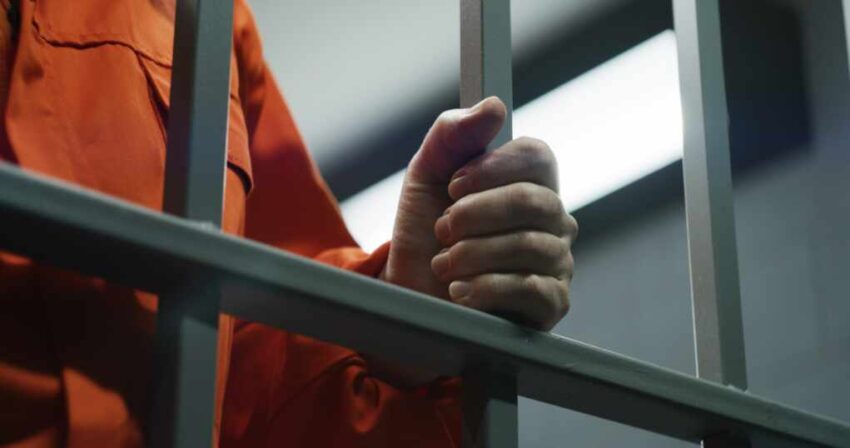Despite strict solitary confinement, high-profile inmate Bryan Kohberger is relentlessly harassed by fellow prisoners, exposing deep flaws in America’s prison security—and raising questions about the protection of even the most notorious offenders.
Story Snapshot
- Bryan Kohberger, convicted of murdering four Idaho students, is being taunted and harassed by inmates at Idaho Maximum Security Institution.
- Harassment continues despite Kohberger’s placement in 23-hour solitary confinement, with inmates shouting through vents and disrupting his sleep.
- Experts confirm the psychological toll of isolation and persistent abuse, with concerns for Kohberger’s mental health and broader prison safety.
- The incident underscores persistent challenges in protecting high-profile inmates and exposes ongoing controversy over solitary confinement practices.
Persistent Harassment in Solitary Confinement
Bryan Kohberger, convicted of the 2022 murders that shocked Idaho and the nation, now faces unrelenting verbal harassment from fellow inmates at Idaho Maximum Security Institution. Despite being locked in solitary confinement for 23 hours per day, Kohberger is not shielded from the prison’s social dynamics. According to prison incident reports cited by Inmates are tormenting convicted Idaho killer Bryan Kohberger in Idaho prison, report, inmates have shouted taunts and threats through the ventilation system, allegedly targeting Kohberger due to the notoriety of his crimes and his lack of any connection to the victims.
This ongoing abuse has raised significant concerns about the effectiveness of solitary confinement as a protective measure for notorious offenders. Kohberger has repeatedly complained to prison authorities about the constant shouting and sleep deprivation, which is reportedly taking a toll on his mental well-being. Security protocols intended to isolate high-profile inmates from physical harm appear insufficient when it comes to psychological torment, especially in facilities with a history of unrest and inmate violence.
Expert Analysis: Social Hierarchies and Mental Health Risks
Correctional experts emphasize that inmates convicted of particularly heinous or high-profile crimes often become targets for other prisoners, regardless of physical barriers. Chris McDonough, a retired homicide detective, describes the harassment aimed at Kohberger as “relentless,” noting that such notoriety puts a perpetual “target on his back.” Former inmates and prison documentarians confirm that crimes involving vulnerable victims, such as children or young adults, often lead to intensified risks and social ostracization within prison hierarchies.
Psychological consequences for inmates subjected to both isolation and persistent abuse can be severe. Prison reform advocates quoted in 19-2 Decision Order on Petition for Review warn that solitary confinement exacerbates mental health decline, especially when combined with targeted harassment. Kohberger’s reported sleep deprivation and psychological stress highlight broader systemic issues, including the potential for long-term trauma and the challenge of maintaining order and safety in high-security environments.
Institutional Response and Broader Implications
The Idaho Department of Correction (IDOC) has reiterated its commitment to inmate safety, stating that solitary confinement is a housing assignment rather than a disciplinary measure. However, critics argue that this distinction offers little reassurance when high-profile inmates continue to face abuse from afar. The ongoing situation with Kohberger is not unique; previous high-profile inmates have also suffered harassment or violence, prompting questions about the adequacy of current protocols and the responsibilities of prison authorities.
Idaho killer Bryan Kohberger complains to guards about inmate taunts with target on his back: report someone will end him in prison https://t.co/jv5KmSpYYc
— Craig (@CraigChryan88) August 14, 2025
According to Fight at Idaho maximum-security prison involves more than 30 prisoners, recent incidents such as large-scale fights and hunger strikes protesting conditions at the Idaho Maximum Security Institution further illustrate broader challenges in U.S. prison management. The Kohberger case is likely to intensify scrutiny of solitary confinement practices, not only for notorious offenders but for all inmates subjected to extended isolation. As media and public attention remain high, the debate over balancing security, mental health, and humane treatment in American prisons is set to continue—and with it, calls for meaningful reform and accountability.
Sources:
Inmates are tormenting convicted Idaho killer Bryan Kohberger in Idaho prison, report
University of Idaho murders: Bryan Kohberger reportedly moved to solitary confinement at maximum security institution
Idaho killer Bryan Kohberger complains to guards about inmate taunts with target on his back: report
19-2 Decision Order on Petition for Review
Fight at Idaho maximum-security prison involves more than 30 prisoners
Click this link for the original source of this article.
Author: Editor
This content is courtesy of, and owned and copyrighted by, https://republicanpost.net and its author. This content is made available by use of the public RSS feed offered by the host site and is used for educational purposes only. If you are the author or represent the host site and would like this content removed now and in the future, please contact USSANews.com using the email address in the Contact page found in the website menu.








